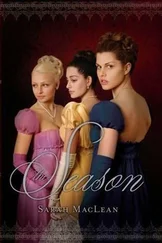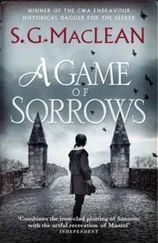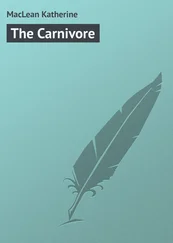‘And the praying?’
‘They do not know him as we do, James. Not the minister, nor yet the baillie, the provost nor the session clerk. Not one of them asked him about the praying.’
‘And to you, Alexander? He would say nothing to you?’
I shook my head. ‘There was no opportunity for private speech between us. He was at the provost’s but a very short time before he was ordered to be warded in the tolbooth.’ I dropped my voice. ‘They would not let me go with him.’ But I had gone with him. In my mind, in my soul, I had gone with him. For as they had dragged him out through the great oaken doors of the provost’s house he had called to me just as the dying man last night had called to me. He had called to me over his shoulder as they dragged him away, desperation in his eyes, ‘Help me, Alexander. For the love of God, help me!’ This time, I would not walk by on the other side.
‘And you will help him, Alexander. And I with you. For I promised his mother on her death-bed that I would watch over that boy, and my promise is not over yet.’ I had never guessed it, never wondered at it before. James Jaffray had watched over and provided for the orphaned Charles Thom through his boyhood and into early manhood simply because a dying mother had asked him to. Of all the souls I had encountered in my twenty-six years upon this earth, there were few who could compare with Dr James Jaffray.
When the servant girl came in with more coals for the fire, Jaffray instructed her to prepare a basket of food – bread, cheese, some of whatever broth was to be had from the kitchen – with some ale to be ready for me to take with me when I left. I was to take it to Charles in the tolbooth and to insist on being allowed to see him. From a cabinet in his workroom, the doctor also brought a syrup of balm. ‘Tell him to take it; it will cheer his heart and chase away his melancholy.’ I assured the doctor that I would not leave until Charles had swallowed some of the medicine. A thick rug, too, was thrust into my arms as I prepared to leave.
‘You are a good girl, Ishbel,’ said Jaffray. ‘I had not thought of the cold.’
The girl replied quietly, ‘He is always complaining of the cold, doctor.’
I took it from her. ‘He shall know that it comes from you, Ishbel.’ She might have said something more, but I was not sure, for she had turned away to leave the room.
‘You will tell him, Alexander, that we will move heaven and earth, you and I, to have him out of that place.’
Thus laden with provisions and instructions, I made to leave the doctor’s house, but almost at the door I remembered something that had lain half-forgotten in my mind all day.
‘Doctor,’ I said, ‘how went your mission to Findlater? You were not too late?’
‘Only by two days.’
‘Two days? I do not understand.’
‘No more do I, my boy, no more do I. But I tell you this, the Devil was in it, for her ladyship was not. No more was the old lady or any other of the family. The gate-keeper told me they had all shifted to Cullen two days since, his lordship having at last got the better of his mother. I did not proceed to Cullen, for I know they consult Reid when they are there – age prevents him going out to Findlater. It suited someone’s purpose that I should not be in Banff last night.’
‘Who brought the message?’ I asked.
Jaffray sighed. ‘I do not know. All the long way back from Findlater I seethed and raged and vowed I would get to the bottom of it.’ He went to the door leading into the kitchen hallway and called for the stable boy. He looked frightened when questioned, fearing he would be blamed for the doctor’s wild goose chase. ‘Who brought the message from Findlater last night, boy? Was it someone you knew to be from the castle?’
The boy stuttered. ‘I do not know, sir. I have never been that far out of the burgh. I don’t know the folk at the castle.’
‘But it was not anyone from the town? Think now.’
The boy was almost on the verge of tears. His words came out in a rush. ‘I’m sorry, sir; all I could see was someone in the darkness, with a cloak all blowing around them, and a hood nearly down over their face against the storm. They shouted across the yard that you were needed at Findlater. You were to lose no time, for her ladyship was in child-bed and had need of you. That was all; I don’t know who it was.’ He looked at me, pleading. ‘But they did say Findlater, sir, I know that, for I asked them twice, it being such a night.’
‘You did the right thing, Adam. But did you know the voice? Was it a man or a woman?’
Again the boy looked hopeless. ‘I do not know. A boy I think, but no one I know.’
I handed the boy a coin. ‘Go and see to the horse now. You have done no wrong.’ It was with great relief that he returned to the courtyard.
‘Who can it have been, James?’ I asked.
He shrugged, at a loss. ‘I do not know. A servant? A vagrant paid to perform the task and forget that they had done so? It little matters. The effect has been the same: someone saw to it that I was not here, and the boy is dead.’ He was not to be comforted, but his response would not be to indulge himself. ‘We must seek out this messenger and find out who sent him.’
A watch was being kept night and day at every entrance to the burgh, for fear of the plague that had been rumoured to be in the south. Anyone entering the burgh would have to state their identity, their place of origin and their business. I myself had taken my turn on the watch at the Sandyhills gate the night before last. I promised Jaffray that I would enquire at every port to the town whether there had been a messenger coming in with business for him last night.
I did not go directly to the tolbooth, for the baillie had warned me that no one would be permitted to see Charles until after the council had met, and that would be an hour or more yet. It was now a clear, brisk spring day. The sea rolled determinedly into the shore, but with no sense of the previous night’s vehemence. Everything looked clean and new, a contrast to the formless canker at work in the heart of the town itself. I was filled with a desire to get away from it for a time, to be on my own.
I left my burden at the schoolhouse and set out along the coast, towards the west. I pulled my hat down low and ignored the greetings and enquiries of the burgesses and of my fellow townsfolk as I strode along Low Shore, beneath the Rose Craig and past the new harbour works at Guthrie’s Haven. I would have stopped a while to watch the cormorants and sand pipers at Meavie Point, holding out to the last moment to their jagged perch until it was claimed at last by the irresistible sea, but I was not yet far enough from the town, and so pressed on. I passed by the fishermen’s huts at the Seatoun. They would not bother me; in fact, they took pains to avoid me. With them at least I knew it was no particular aversion to my person, but to my position, or at least that which I had aspired to. It was as bad luck, they said, for them to meet a minister as it was for them to cross the path of a woman on the way to their boats. The unforgiving sea had claimed too many of their number for their caution to be questioned. I had not become a minister. I had failed at the last hurdle – almost indeed at the last moment – but I had come close enough that the fishermen would avoid my person and avoid my eye on any day when they planned to put out their boats.
As I passed by their row of miserable huts, I cast my gaze upwards, towards the great rocky promontory known from ancient times as the Elf Kirk. It was a place held deeply suspect by the kirk session, and mothers warned their children against going there. Some, no doubt, respected the feeling of the session; others had greater fear of the deep gully and jagged rocks jutting from the swirling waters below. Whatever their reasons, few of the townsfolk would be seen there. It could be a place of great beauty too, as spring gave way to early summer and the rocks were clothed in cascading green velvet with pockets of yellow primroses and soft sea pinks clinging to its folds. There were no flowers today though; it was something of flowing white, fluttering slightly in the breeze that caught my eye. The folds of a woman’s cloak. Her head was uncovered and her long red hair, usually marshalled in a thick plait, hung loose down her back. Even at this distance I recognised Marion Arbuthnott. I would have called out to her, but she would not have heard me. I stood watching and in time she looked away from the ravine and out towards the sea. I lifted my arm and she saw me, but did not return my greeting. She looked at me for a long moment and then, pulling the hood of her white cloak up about her, she turned back towards the town. She had the air of a creature further from the living than the dead: I had within me a foreboding that she had had it in mind to harm herself, and I was thankful that Providence had allowed me to prevent that at least.
Читать дальше












